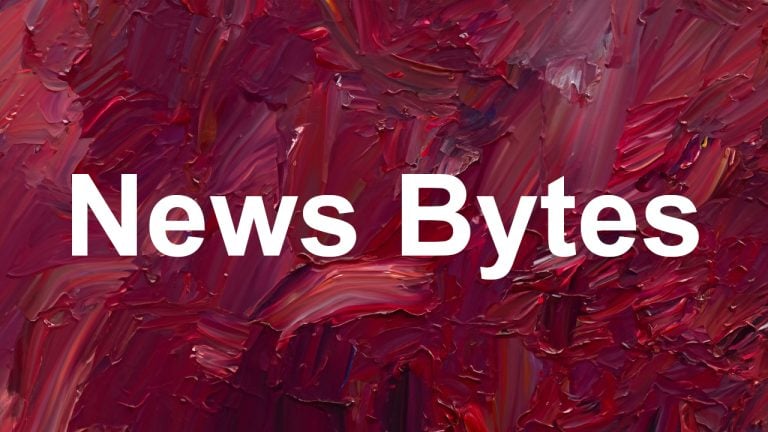
A 24-year-old man from the Netherlands has reportedly been arrested after allegedly scamming 300 people out of millions of dollars. According to a new report by local news outlet Oost, an unnamed law student and professional soccer player from the Dutch city of Hegelo has been arrested and accused of defrauding investors and mishandling their […]
The post 24-Year-Old Arrested for Alleged $4,600,000 Crypto Scam That Defrauded 300 People: Report appeared first on The Daily Hodl.

Ethereum co-creator Vitalik Buterin has donated hundreds of thousands of dollars worth of ETH to Alexey Pertsev, a developer of Tornado Cash, a crypto mixer once sanctioned by the US government. According to Etherscan data reported by crypto reporter Colin Wu, Buterin donated a total of 100 ETH to Pertsev on two occasions, helping him […]
The post Ethereum Creator Vitalik Buterin Donates $340,000 in ETH to Tornado Cash Developer Alexey Pertsev appeared first on The Daily Hodl.

The Dutch government wants to align its data collection rules for crypto service providers with the rest of the EU, saying it would “create more transparency.”
The Dutch government has asked for public input on proposed laws that would require crypto service providers, such as exchanges, to collect and share user data with the local tax authority — aligning with European Union rules.
“The aim of the bill is to create more transparency about the ownership of cryptocurrencies, which can prevent tax avoidance and evasion,” the Netherlands Ministry of Finance said in an Oct. 24 press release.
It added “nothing will change” for crypto owners under the proposed rules as they’re already required to file a tax return of their holdings to the country’s tax authority, the Belastingdienst.

A leading US-based crypto exchange is establishing its European footprint by acquiring the Dutch crypto broker Coin Meester B.V. (BCM). In a new press release, Kraken says it has closed on a deal with BCM that will “strengthen” the crypto exchange’s presence in Europe. “With the acquisition of BCM, one of the Netherlands’ oldest and […]
The post Kraken Announces New Acquisition of Dutch Crypto Broker in Continued European Expansion appeared first on The Daily Hodl.
 Global crypto trading platform Okx has launched its centralized exchange and wallet in the Netherlands. Dutch customers can now engage in spot trading and convert services for over 150 cryptocurrencies, including more than 60 crypto-Euro pairs. The platform integrates with Ideal, a popular online payment system in the Netherlands, for instant, fee-free deposits, and offers […]
Global crypto trading platform Okx has launched its centralized exchange and wallet in the Netherlands. Dutch customers can now engage in spot trading and convert services for over 150 cryptocurrencies, including more than 60 crypto-Euro pairs. The platform integrates with Ideal, a popular online payment system in the Netherlands, for instant, fee-free deposits, and offers […]

Does code as freedom of speech mean that developers aren’t responsible for how their creations are used?
Crypto industry advocates are locked in a debate with regulators over whether a protocol’s code constitutes free speech, and what that means for liability.
Lawmakers have long accused the crypto industry of facilitating illicit activities, from money laundering to financing terrorism. This has led to several court cases, arrests and even incarcerations.
Recent high-profile examples include the arrests of developers who worked on crypto mixers Tornado Cash and Samurai Wallet, as well as the United States Securities and Exchange Commission’s (SECs) planned enforcement action against decentralized exchange Uniswap.

The conviction of Tornado Cash developer Alexey Pertsev reinforces a very broad interpretation of criminal liability, which has major repercussions for blockchain.
The conviction of Alexey Pertsev, a developer of coin-mixing protocol Tornado Cash, comes from a chilling interpretation of criminal liability likely to have wider ramifications for crypto.
The Dutch court’s guilty verdict means Pertsev must now serve a sentence of five years and four months for money laundering through Tornado Cash. This is despite the fact that Pertsev had no direct involvement in the laundering itself.
Andrew Balthazor, a litigator with the legal firm Holland and Knight, spoke with Cointelegraph to explain the implications of the verdict.

Institutional staking platform Figment will become an additional infrastructure provider to Dutch exchange Bitvavo.
Update (May. 1 at 15h00 UTC): This article has been updated to include additional information about Figment's partnership with Bitvavo.
Netherlands cryptocurrency exchange Bitvavo will tap into staking platform Figment’s institutional-grade infrastructure to stake a variety of tokens on behalf of its users.
Figment, which attracted significant investments from the likes of Galaxy Digital in 2021, announced that it would provide staking infrastructure for the Dutch exchange. Bitvavo will stake user assets across multiple proof-of-stake protocols including Ethereum, Solana and NEAR.

The U.S. FBI found that the Akira ransomware group has been targeting businesses and critical infrastructure entities in North America, Europe and Australia since March 2023.
Akira, a year-old ransomware group, breached more than 250 organizations and extracted approximately $42 million in ransomware proceeds, top global cybersecurity agencies alerted.
Investigations conducted by the United States Federal Bureau of Investigation (FBI) found that Akira ransomware has been targeting businesses and critical infrastructure entities in North America, Europe and Australia since March 2023. While the ransomware initially targeted Windows systems, the FBI recently found Akira’s Linux variant as well.
The FBI, along with Cybersecurity and Infrastructure Security Agency (CISA), Europol’s European Cybercrime Centre (EC3) and the Netherlands’ National Cyber Security Centre (NCSC-NL), released a joint cybersecurity advisory (CSA) to “disseminate” the threat to masses.

A prominent US-based crypto exchange platform is venturing into Europe’s fifth-largest economy after acquiring the proper registration. In a new press release, crypto trading platform Kraken announced that it has obtained VASP (Virtual Asset Service Provider) registration from the Dutch Central Bank (DCB), allowing it to expand its services into the Netherlands. VASP licenses give crypto […]
The post US-Based Crypto Exchange Cracks Into Europe’s Fifth-Largest Economy With VASP Registration appeared first on The Daily Hodl.